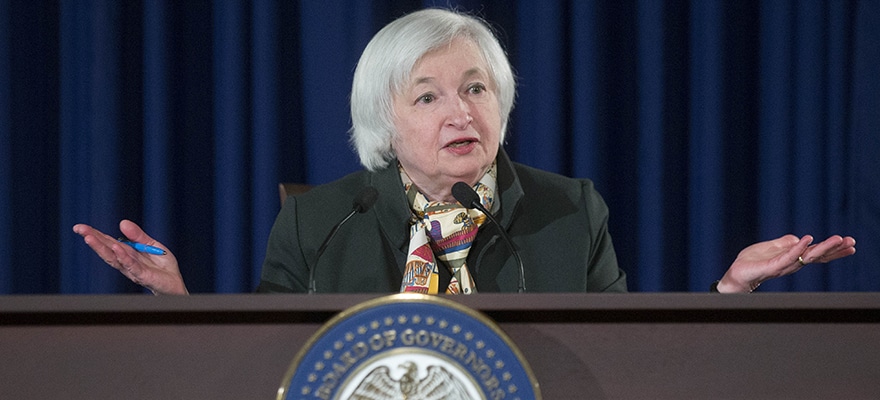The recent release of Kinetic Partners’ annual Global Enforcement Review sheds light on a number of emerged regulatory trends: leaner and tougher market regulators; new rules of the game; and a greater onus on firms to monitor and report their behavior. Simon Appleton, the advisory firm’s Director of Regulatory Consulting, delved into these topics in an exclusive interview with Finance Magnates.
The regulatory environment has seen the emergence of leaner and tougher market regulators, new rules of the game, and a greater onus on firms.
Lean and Mean Regulators
Looking at the FCA in the UK, the SEC, CFTC and FINRA in the US, and the SFC in Hong Kong, the review points out a couple of key trends common across jurisdictions. Namely, from 2013 to 2014, there was a tendency for fewer yet tougher enforcement actions and, simultaneously, spending at all regulators either slowed or reversed.
The tendency “to focus on complex, high-profile cases and Leverage massive penalties”, as they describe, comes as no surprise. Indeed, this was put into stark relief this May when the high-profile LIBOR and FX fixing scandals attracted record fines, with five major banks - Citigroup, JPMorgan, Royal Bank of Scotland, UBS AG, and Barclays Plc - collectively receiving a whopping $5.7 billion in penalties.
The report points out that, while fines have been increasing (by as much 272% at FCA), the number of actual enforcement cases has dropped. “The averages tell only part of the story…and have been pushed up by a relatively small number of massive fines. This indicates a shift in approach to enforcement, with prohibitively high fines becoming the norm.”
While fines have been increasing (by as much 272% at FCA), the number of actual enforcement cases has dropped.
While a number of commentators have expresses scepticism that fines do not work by themselves to prevent wrongdoing, Appleton pointed out that it is not merely a matter of cost; compliance is “good for business” (we will come back to this later).
On the other hand, regulators have experienced either a slowing or a reduction in operational costs. This follows significant increases in expenditures in the years following the financial crisis. Appleton explained that the savings can be attributed to the increased deployment of technology.
Indeed, with electronic trading volumes having jumped from 20% in 2001 to 72% in 2014, regulators now require electronic surveillance systems. Appleton: “There are so many orders in the market now generated from electronic trading strategies. You need the market abuse detection systems to keep up with this development.”
New Rules
As the regulators sharpen their teeth, legislation has also moved on. Appleton explained that until recently, fixed-income, currency and commodity markets have enjoyed rather lax oversight. Comprised predominantly of large intuitional investors, the general sentiment was that they can look after themselves.
However, after a number of high-profile market manipulation scandals, such as the LIBOR and FX fixing sagas, the need for stricter oversight and reporting requirements was highlighted. Indeed, the consequences that stem from the “big boys behaving badly” can be felt broadly, as Appleton elucidates: “Every [manipulative] action they take can have an impact on us, the end investor. When we go and get our foreign currency, it can affect those rates… when you manipulate interest rates, it can affect what we pay on our mortgage each month. So it has an affect down to the end user.”
The new rules represent what Appleton describes as an “integrated and holistic” approach to regulation.
As such, a number of jurisdictions have introduced new rules. Notably, ESMA, the EU’s financial watchdog, has passed legislation that will raise reporting requirements from January 2017 and compel firms to snuff out market abuse by monitoring all orders, trades and e-communications across all five asset classes from July 2016. This will allow regulators to monitor markets more effectively.
The new rules represent what Appleton describes as an “integrated and holistic” approach to regulation; looking at all traffic. However, he emphasised trades and orders as being of paramount importance, stating: “It would be a very ill-advised trader that was still using obvious words around manipulation in email traffic after what has happened historically.”
Demands on Firms
Finally, Appleton explained that firms have become more actively involved in the regulation of the industry. And with a heightened external regulatory environment, firms must also become prepared by putting in place effective control frameworks.
He describes three levels of defence:
Firstly, the front desk: “The desk supervisor, who really understands the business and the trade-flows”. Through training and formal written procedures, the firm must instil a “strong culture of compliance”. Regulators can help here too by providing training, market and reporting seminars, and informative newsletters and websites.
With a heightened external regulatory environment, firms must become prepared by putting in place effective control frameworks.
Secondly, compliance departments need to up their ante; specifically, “investing in advanced centralised monitoring systems to closely track transactions to help firms understand where their market activity may open them up to enforcement risk so as to remediate accordingly.” This supports the holistic approach to reporting inherent in the new rules.
Appleton saw the drift of personnel from the regulators into firms as a positive development. He also emphasised keeping technology in check. For example, firms should have in place effective pre-trade controls, such as circuit breakers on algorithms to prevent erroneous price spikes.
And thirdly, audit departments need to keep their eye on the firm as a whole.
In Appleton’s experiences, some firms are doing better than others. “Historically, the exchanges have been better. They obviously have real-time market monitoring systems…Then you have investment banks, which have over the last few years started to use automated market abuse surveillance techniques. I think it’s very patchy even amongst the investment banks…some still have a long way to go. It’s fair to say that they are more developed in the equities and bonds space, but FX is playing catch-up.”
The End Game
Confidence in the market is of paramount importance. If you don’t have it then you start to lose Liquidity and the cost of capital for companies begins to rise.
With such a plethora of recommendations, it’s fair to ask why firms would invest the time and money when they could simply budget for fines.
Appleton’s answer: It’s good for business. By being proactive and not waiting for regulators to come knocking, firms are protecting their reputations. “I would argue that the future is all about putting the customers first and building a good reputation for yourself. If insider trading comes to light, where do you think their business is going? One way: probably out of business.”
He adds: “Essentially, confidence in the market is of paramount importance. If you don’t have confidence in the market then you start to lose liquidity and the cost of capital for companies begins to rise. You cannot have rigged markets…Regulators are talking to each other more and more; this is a global phenomenon.”






















